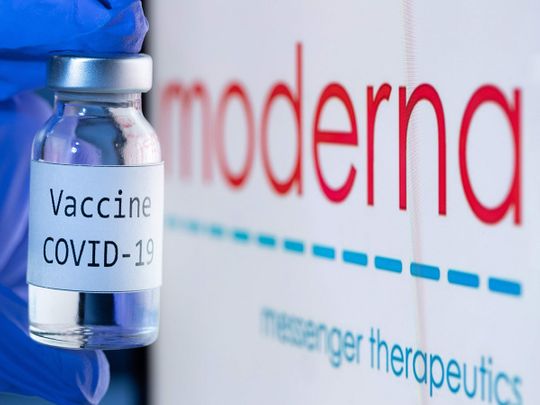We do not rise to the level of our aspirations, we fall to the level of our systems – our daily habits, rituals, and patterns of behavior. This applies to individuals as well as to companies.
And for many medical companies navigating through the pandemic, what starts as an aspiration to do good for patients deteriorates into a system of capitalistic enterprise. Moderna is no exception.
A company borne out of public research funding and high-powered angel investors, Moderna epitomizes what can be achieved by commercializing university research through venture capital. Even before the pandemic, Moderna raised otherworldly amounts of venture funding and fostered a cutthroat culture of secrecy normally reserved for Silicon Valley unicorns – even requiring prospective employees to sign confidentiality agreements during job interviews.
“Live the mission” is the company’s motto, reinforced through the undying intensity and corporate manifest destiny of its CEO, Stéphane Bancel, who led the company since its inception, through its formative years, and now enjoys cult hero status as Moderna has become something of a savior during the pandemic for its highly effective vaccines.
That is until recently, when Moderna came under fire for restricting access to its vaccines, specifically opting to commercialize its vaccines internally instead of licensing out the manufacturing rights to third-party vaccine developers. A decision that restricts access to its vaccine internationally by keeping the vaccine prices prohibitively high for many countries.
Although Moderna has proceeded with developing a manufacturing facility in Africa, ostensibly to provide direct access to a region sorely in need of more vaccines, it remains adamant about maintaining ownership of company’s intellectual property and licensing rights.
A Moderna spokeswoman elaborated that the company was “willing to license [the] intellectual property for COVID-19 vaccines to others [in] the post pandemic period.” But during the pandemic, while vaccine demand remains high, Moderna is keen on keeping its vaccine prices as high as possible.
A sensible decision, one that likely appeases the many venture capitalists that financed Moderna’s growth. But one that comes across as abrasive and out-of-touch for many in the public who saw Moderna accelerate its vaccine development through publicly available funds offered under Operation Warp Speed.
A federal government program spearheaded by Moncef Slaoui, a former pharmaceutical executive, was a public-private partnership that oversaw the development of COVID-19 vaccines in record time. An amazing accomplishment that began with a noble mission – provide life saving vaccines to stave off the COVID-19 pandemic.
But over the course of the pandemic, that noble mission degenerated into a business model for Moderna, defined by its venture capital ethos of high growth. High growth requires strong profit margins. Strong profit margins require Moderna to keep its vaccine prices high – a hard reality for many to grasp.
The same business model that allows Moderna to develop the COVID-19 vaccine in a matter of months also allows the company to keep its vaccine prices high. This is the modern healthcare system, in which business models emphasize a profit motive and clinical decisions are made through financial incentives. Successful medical companies like Moderna have adapted well to the realities of this system.
Although they would never admit to this, and they have provided plenty of media friendly sound bites reiterating their goal of providing novel treatments for diseases while “living the mission” – a blatant appeal to the aspirational elements of medicine.
But in modern healthcare, that aspiration has been reduced to a platonic ideal, often nothing more than a talking point, which then gravitates silently towards the profit-motive realities of today’s healthcare system.
This is a tendency that has existed long before the pandemic. Addiction medicine, one of the fastest growing fields in healthcare, received special carve-out clauses in the Affordable Care Act (ACA). The clauses were intended to provide greater access to addiction health services, like outpatient treatment facilities and personal counseling.
At least that was the aspiration. The reality was far more profit-centered. Since the ACA became law, expensive rehabilitation facilities have sprouted throughout the country, presenting themselves as ideal rehabilitation facilities with near resort-like accommodations. These facilities, due to the carve-out clauses, are able to charge patients and their insurance carriers higher rates for clinical services rendered, garnering greater profits accordingly.
As a result, the goal of providing additional access to care for patients with substance use dependencies has degenerated into a cycle of relapses, in which patients churn in and out of these facilities while providing a consistent revenue stream to these rehabilitation facilities.
In fact, most of healthcare behaves this way, aspiring for some ideal, but behaving according to the profit motive realities of a modern healthcare system. So Moderna’s recent behavior should come as no surprise. If truth be told, it should be expected.
So the next time you hear a healthcare company touting some idealized aspiration, resist the tendency to believe it. Inevitably that aspiration will give way to the financial incentives baked into the modern healthcare system, one in which profits reign supreme.
This is where modern healthcare has fallen.















